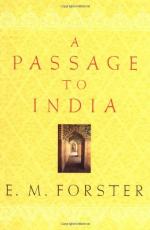|
This section contains 2,942 words (approx. 10 pages at 300 words per page) |

|
Forster's accounts of India and Indians show clearly that in writing A Passage to India he was very selective, lifting from personal experience only those elements that contributed to the novel's meaning. Life inevitably goes beyond art in these matters—the real person (Syed Ross Masood [the Indian friend he met at Oxford and later visited in India], for example) is far more complex and immediate than his fictional counterpart (Aziz)—so Forster simply took from experience what he needed and no more. In this sense, A Passage to India offers an intensely personal view of India under English rule, and Forster would have been the first to identify the book as such: he detested authors claiming to be purveyors of universal truths about "the real India." (pp. x-xi)
Although this study approaches A Passage to India primarily as a work of art, I hope that it also...
|
This section contains 2,942 words (approx. 10 pages at 300 words per page) |

|


